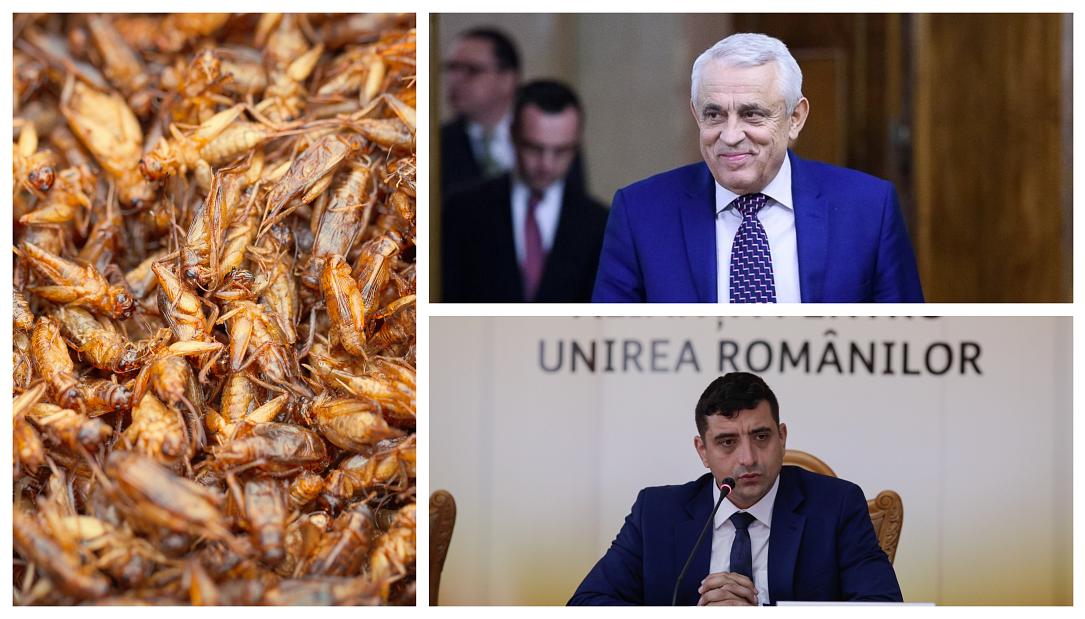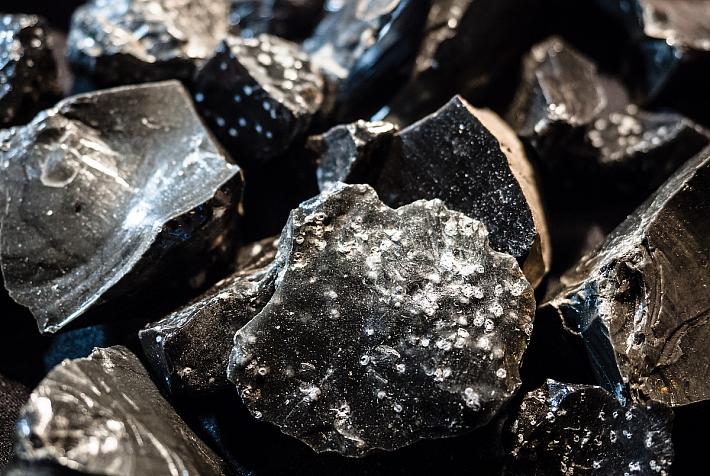Romanian politicians’ strange crusade against edible insects

Far-right nationalist party Alliance for the Union of Romanians (AUR) recently introduced a bill banning the use of insects as food meant for humans. The bill is the latest phase in a strange crusade started by politicians across the Romanian political scene against edible insects.
“Because humanity is subjected to a horrible, zealous, and increasingly aggressive manipulation aiming to normalize the use of insects and larvae in human nutrition, we consider it absolutely necessary and extremely urgent to regulate and prohibit the consumption of insects and worms, both as food on their own, as well as ingredients,” an AUR press release cited by Agerpres states. “We support the prohibition of their production, importation, advertising, and commercialization, respectively the prohibition of the allocation of funds to research the introduction of cockroaches into human food,” it continues.
Although strange, the bill is not without its context. Back in November of last year, the European Commission added locusta migratoria, the most common species of locusts, to a list of foods authorized for sale in the EU. They can be sold in frozen, dried, and powdered forms and be eaten as a snack or as a food ingredient. The dried yellow mealworm larvae of the beetle Tenebrio molitor is also approved as a type of food in the EU. Earlier this year, the Commission also added field crickets, acheta domesticus, as a food, making it the third insect to be labeled as such.
The Commission’s approval of edible insects did not come out of the blue. The UN’s Food and Agriculture Organization (FAO) notes that edible insects “contain high-quality protein, vitamins and amino acids for humans. Insects have a high food conversion rate, e.g. crickets need six times less feed than cattle, four times less than sheep, and twice less than pigs and broiler chickens to produce the same amount of protein.” They are also more environmentally friendly than conventional livestock and can relieve some of the pressures that a predicted 9-billion-strong human race will put on resources by 2050.
Nevertheless, whether right or left-wing, Romanian politicians have taken it upon themselves to fight against what they framed as an external push meant to make Romanians replace traditional foods with bugs.
"Don't eat cricket flour,” said minister of agriculture Petre Daea, a Social Democrat, cited by G4Media. “Let them sing wherever they are! We eat what we eat: sarmale (Romanian rice and meat-stuffed cabbage rolls), sausages, and eggs. You’re not going to replace chicken eggs with worms,” he added.
Liberal MEP Rareş Bogdan told an audience gathered at his party's youth summer camp that they should view EU policies with skepticism and that people should not eat “flour made out of cockroaches.”
Not all parties joined the crusade against edible insects. Representatives of Save Romania Union (USR), a reformist party in opposition, argue that the issue has been misinterpreted and used to stoke anti-EU sentiment among Romanians.
“Panicked politicians, some occupying ministerial office, tell us that the EU wants us to eat cockroaches. The actual news, from a year and a half ago, if presented correctly, should've been that the EU regulated the growing and processing of insects as food intended for human consumption, and producers in other countries of the world [...] must comply with these rules," Vlad Botoș, a USR MEP and member of the European Parliament’s Committee on the Internal Market and Consumer Protection, said in an article for Digi24.
“What is presented as an imposition by the European Union is nothing more than the harmonization of legislation that allows you to make a choice, if you want. For some, eating insects can be an ordeal, for others it can be a challenge, while a portion of the population considers insects a healthy food choice. It is strictly the problem of those people and no one can impose on us, Romanians, what we can eat,” Botoș added.
(Photos: Pzaxe/Dreamstime.com, Petre Daea/Facebook, George Călin/Inquam Photos)












